Berberine for Kids
You’ve probably been scrolling through health forums at 2 AM, desperately searching for natural solutions for your child’s health issues. I get it. The berberine buzz is everywhere, but is this supplement actually safe for your kids?
Between the TikTok health gurus and your neighbor who suddenly became a nutrition expert, berberine for kids has become the hot topic at school pickup lines.
I’ve spent months researching this supplement’s effects on children, interviewing pediatricians, and sorting fact from fiction so you don’t have to.
Here’s the unfiltered truth: berberine might offer some benefits for certain children, but it’s not the miracle cure some make it out to be. And what the supplement companies aren’t telling you about safety might shock you.
Understanding Berberine: What Parents Need to Know
The Science Behind Berberine and Its Natural Sources

Berberine isn’t some lab-created compound – it’s actually found in several plants that have been used for centuries. This bright yellow compound comes from plants like barberry, goldenseal, Oregon grape, and Chinese goldthread.
If you’ve ever seen these plants, you might notice they have a distinctive yellow color in their roots, stems, and bark. That’s berberine showing itself!
What makes berberine special is its molecular structure, which allows it to interact with various systems in our bodies. Scientists have identified it as an alkaloid compound, which simply means it contains nitrogen and has some pretty powerful biological effects.
The cool thing about berberine is how concentrated it can be in certain plants. For example, the Chinese goldthread plant (Coptis chinensis) contains up to 8% berberine by weight – making it one of the richest natural sources available.
Historical Use of Berberine in Traditional Medicine
Long before modern science started studying berberine, traditional healers knew these yellow-rooted plants were special. Chinese medicine has records of berberine-containing plants being used for over 3,000 years! They called it “Huang Lian” and used it for digestive issues, infections, and to reduce fever.
In Ayurvedic medicine from India, berberine plants like tree turmeric were prized for healing skin conditions, eye problems, and infections.
Native Americans also recognized the power of berberine-rich plants like goldenseal, using them to treat digestive problems, skin issues, and infections.
What’s fascinating is how these different cultures, separated by oceans and mountains, all discovered the healing properties of these plants independently. They didn’t have microscopes or clinical trials, but they observed results and passed down this knowledge through generations.
How Berberine Works in the Body
When berberine enters your child’s body, it’s like a busy little worker with multiple jobs. First, it isn’t easily absorbed in the gut – which is actually good because it does a lot of its work right there in the digestive tract.
For kids with gut issues, berberine can help balance the microbiome by supporting beneficial bacteria while discouraging the problematic ones. It also seems to reduce inflammation in the digestive tract, which explains why traditional medicine often used it for tummy troubles.
But berberine doesn’t stop there. The portion that does get absorbed into the bloodstream activates an enzyme called AMPK (adenosine monophosphate-activated protein kinase). Think of AMPK as your body’s master switch for energy regulation and metabolism.
By triggering this enzyme, berberine helps cells use glucose more efficiently, which is why it’s studied for its effects on blood sugar. It also appears to support healthy cholesterol levels and may help with immune function.
For children specifically, these metabolic benefits might be especially important as their bodies are still developing and establishing patterns that could last a lifetime.
Comparing Berberine to Other Natural Supplements
Parents often ask how berberine stacks up against other natural supplements they might give their kids. Here’s a quick comparison:
| Supplement | Main Benefits | Safety Profile for Kids | Research Level |
|---|---|---|---|
| Berberine | Gut health, metabolism support, immune function | Limited studies in children | Moderate |
| Probiotics | Gut health, immune support | Generally well-studied in kids | High |
| Fish Oil | Brain development, inflammation | Well-studied in children | High |
| Vitamin D | Bone health, immune function | Well-established safety | Very high |
Unlike probiotics, which introduce beneficial bacteria, berberine works more as a regulator of the gut environment. It’s not as well-studied in children as vitamin D or fish oil, which is why many pediatricians take a cautious approach.
What makes berberine different from synthetic medications is its multi-target approach. While many medications are designed to affect one specific pathway, berberine gently influences several systems at once. This might explain why traditional medicine found it so valuable – it addresses multiple aspects of health simultaneously.
Before adding any supplement to your child’s routine, though, having a conversation with your pediatrician is always the smart move.
Safety Considerations for Berberine Use in Children
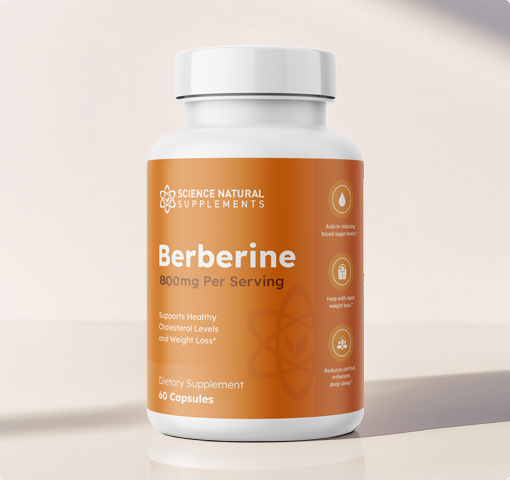
A. Age-Appropriate Dosages and Recommendations
There’s a big problem with berberine for kids – we don’t have standardized dosing guidelines. Unlike medications approved by the FDA, berberine supplements lack official pediatric dosing protocols.
Most doctors recommend avoiding berberine in children under 12 altogether. For teens (12-18), some practitioners might suggest starting with a much lower dose than adults – typically 1/4 to 1/3 of the adult dose (around 100-200mg once daily) and only under medical supervision.
Never guess at dosages for your child. Every kid metabolizes supplements differently based on:
- Weight and age
- Overall health status
- Other medications they take
- Individual sensitivity
B. Potential Side Effects and Warning Signs
Kids may experience different side effects than adults when taking berberine. Watch for these common reactions:
- Digestive issues: Stomach pain, diarrhea, constipation, nausea
- Low blood sugar: Shakiness, confusion, irritability, hunger
- Allergic reactions: Rash, itching, swelling (rare but serious)
- Headaches: New or worsening headaches
- Changes in energy levels: Unusual fatigue or hyperactivity
More concerning warning signs that require immediate medical attention include:
- Severe stomach pain
- Vomiting
- Signs of dehydration
- Extreme drowsiness
- Unusual behavioral changes
Many parents don’t realize that children often can’t articulate supplement side effects the way adults can, making close monitoring crucial.
C. Drug Interactions Parents Should Be Aware Of
Berberine doesn’t play nice with several medications your child might be taking. These interactions can be dangerous, even life-threatening in some cases.
Berberine can interact with:
- Diabetes medications: Can cause dangerous blood sugar drops
- Antibiotics: May reduce effectiveness of certain antibiotics
- Blood thinners: Could increase bleeding risk
- Certain psychiatric medications: May alter effectiveness
- Immunosuppressants: Potential for reduced effectiveness
Many common pediatric medications haven’t been specifically studied for berberine interactions, creating an additional layer of uncertainty and risk.
D. When to Avoid Berberine in Children
Some situations make berberine an absolute no-go for kids:
- Infants and children under 12
- During illness or recovery
- Before or after surgery (stop at least 2 weeks prior)
- Liver or kidney problems
- Diabetes (unless closely monitored by a specialist)
- Heart rhythm disorders
- Autoimmune conditions
- Pregnancy or breastfeeding (for teens)
- History of allergic reactions to berberine or related compounds
Kids with ongoing health conditions should never start berberine without their pediatrician’s explicit approval – not just permission.
E. Research on Long-Term Safety in Pediatric Populations
The research gap here is startling. While some studies explore berberine’s effectiveness for specific conditions, long-term safety data in children remains virtually nonexistent.
Current research limitations include:
- Most studies focus on adults
- Limited pediatric studies have small sample sizes
- Follow-up periods rarely exceed a few months
- Potential developmental effects haven’t been adequately studied
- Different formulations and quality standards make comparison difficult
Without comprehensive safety data, parents are essentially participating in an uncontrolled experiment with their child’s health when using berberine long-term.
Some researchers worry about potential effects on developing systems in children, including hormonal development and gut microbiome establishment. These concerns remain theoretical but significant enough to warrant extreme caution.
Potential Health Benefits of Berberine for Children
A. Managing Blood Sugar Levels and Insulin Resistance
When it comes to blood sugar management in kids, berberine has shown some promising results. Studies indicate that berberine can help activate an enzyme called AMPK, which plays a key role in how the body processes glucose. This matters for children who might be showing early signs of insulin resistance or those with family histories of diabetes.
Unlike many pharmaceutical options, berberine seems to work in multiple ways – it can reduce glucose production in the liver while also improving insulin sensitivity in the muscles. For kids struggling with blood sugar issues, this two-pronged approach could be helpful.
Parents should know that berberine isn’t a candy-coated miracle pill. The research is still developing, especially in pediatric populations. Most studies showing these benefits have been done with adults, so we’re still learning exactly how these mechanisms translate to growing bodies.
B. Supporting Gut Health and Digestive Function
Berberine shines when it comes to gut health in children. It’s actually been used for centuries to treat diarrhea and other digestive complaints. The science backs this up – berberine has antimicrobial properties that can help balance the gut microbiome by fighting off harmful bacteria while generally preserving the good guys.
For kids with frequent tummy troubles, berberine might help by:
- Reducing intestinal inflammation
- Fighting bacterial overgrowth
- Supporting healthy gut barrier function
- Promoting regular bowel movements
Many parents report improvements in their children’s digestive symptoms after trying berberine supplements. The compound seems to be particularly effective for kids dealing with certain types of diarrhea or bacterial imbalances in the gut.
C. Immune System Support Possibilities
The immune-boosting potential of berberine could be especially valuable for children, who are constantly exposed to germs at school and in play environments. Berberine appears to modulate immune function rather than simply stimulating it – an important distinction.
What makes berberine interesting for kids’ immune systems is how it might help regulate immune responses. It doesn’t just amp everything up (which could potentially trigger inflammation or allergic reactions). Instead, it seems to help balance immune reactions.
Several studies have shown berberine can:
- Support the production of immune cells
- Help with appropriate inflammatory responses
- Potentially reduce the severity of certain infections
- Assist with recovery times
Parents looking for natural immune support options might find berberine worth investigating, especially during school seasons when kids are swapping germs like trading cards.
D. Anti-Inflammatory Properties and Applications
Chronic inflammation is becoming increasingly common in children, showing up as everything from skin conditions to respiratory issues. Berberine’s anti-inflammatory effects could offer some relief.
The compound works by inhibiting certain pro-inflammatory pathways in the body. In plain English? It helps turn down the volume on inflammation signals. This could be beneficial for kids with:
- Inflammatory skin conditions
- Allergic reactions
- Respiratory inflammation
- Recovery from illness or injury
The research specifically points to berberine’s ability to reduce levels of inflammatory markers like TNF-α, IL-6, and IL-1β. While these sound like alphabet soup, they’re actually key players in the body’s inflammatory response.
What’s particularly interesting is how berberine might help with low-grade inflammation – the kind that simmers beneath the surface without obvious symptoms but can contribute to health issues down the road.
Medical Conditions Where Berberine May Help Children
Medical Conditions Where Berberine May Help Children
A. Childhood Obesity and Metabolic Concerns
Childhood obesity has hit record levels, and parents are desperately seeking safe alternatives to pharmaceuticals. Berberine has shown promising results for kids struggling with weight and metabolic issues.
Studies indicate berberine can help regulate blood sugar in overweight children by activating an enzyme called AMPK – basically your child’s metabolic master switch. This helps their cells use glucose more efficiently instead of storing it as fat.
One small clinical study found that children taking berberine for 3 months showed significant improvements in insulin sensitivity and BMI compared to a placebo group. What’s really interesting? The kids didn’t experience the harsh side effects that come with prescription medications.
But hold up – don’t rush to the supplement aisle just yet. The dosage for children differs dramatically from adults, and supervision is absolutely necessary.
B. Digestive Issues and SIBO
Got a kid with tummy troubles? Berberine might be worth discussing with your pediatrician, especially for digestive conditions like SIBO (Small Intestinal Bacterial Overgrowth).
Berberine acts as a natural antimicrobial that targets the bad bugs while being gentler than conventional antibiotics. For kids with recurring digestive issues, this can be a game-changer.
Parents report improvements in their children’s bloating, gas, and irregular bowel movements after carefully supervised berberine protocols. The compound seems to help restore healthy gut balance by:
- Reducing harmful bacteria populations
- Supporting intestinal barrier function
- Decreasing inflammation in the digestive tract
Kids with IBS symptoms have shown notable improvements in stool consistency and abdominal pain when berberine is part of a comprehensive treatment plan.
C. Skin Conditions That May Respond to Berberine
Childhood eczema and acne can be incredibly frustrating – both for kids suffering through it and parents trying everything to help. Berberine’s anti-inflammatory and antimicrobial properties make it potentially valuable for certain skin conditions.
When applied topically (in formulations appropriate for children), berberine may help with:
| Skin Condition | How Berberine Might Help |
|---|---|
| Eczema | Reduces inflammation and itching |
| Acne | Fights bacteria and calms redness |
| Minor infections | Provides antimicrobial support |
| Psoriasis | May slow excessive skin cell turnover |
Some parents combine oral and topical berberine approaches under medical supervision for more stubborn skin issues. The compound seems to work from the inside out, addressing both the symptoms and potential gut-related root causes of skin problems.
D. Attention and Cognitive Support
Parents searching for natural approaches to support focus and cognitive function might be intrigued by emerging research on berberine.
While not a replacement for conventional ADHD treatments, berberine shows potential for supporting healthy brain function through several mechanisms:
- Improved blood flow to the brain
- Reduced neuroinflammation
- Enhanced mitochondrial function in brain cells
- Balanced dopamine signaling
Some integrative pediatricians report anecdotal success using berberine as part of a comprehensive approach for children with attention challenges, particularly when metabolic factors might be contributing to focus issues.
The connection between gut health and brain function (the gut-brain axis) is another reason berberine might indirectly support cognitive function by improving digestive health.
Remember though – the research here is preliminary, and berberine should never replace prescribed medications without medical supervision.
How to Incorporate Berberine Safely into Your Child’s Routine
Consulting with Healthcare Providers First
Look, I’m all for natural remedies, but when it comes to your kids, you absolutely need to talk to their doctor before starting berberine. This isn’t just me being cautious – berberine is powerful stuff that can affect blood sugar levels and potentially interact with medications your child might be taking.
When you visit the pediatrician, bring information about:
- Why you’re considering berberine for your child
- Any medications or supplements they’re currently taking
- Your child’s complete medical history
- Specific concerns you hope berberine will address
Many conventional doctors might not be super familiar with berberine supplements. Don’t be discouraged if they want to research it before giving you the green light. Some parents find success working with pediatricians who practice integrative medicine or functional medicine approaches.
Available Forms and Child-Friendly Options
Berberine comes in several forms, but not all are great for kids:
- Capsules: The standard form, but often tough for kids to swallow
- Liquid extracts: Easier to administer but can taste bitter
- Chewables: More kid-friendly but harder to find
- Powder: Can be mixed into foods but taste may be an issue
Some companies have started making kid-specific formulations with lower doses and better flavoring. The taste of berberine is naturally bitter, so finding a palatable option matters a lot for compliance.
When shopping for your child, prioritize:
- Products specifically formulated for children
- Third-party tested supplements for purity
- Organic ingredients when possible
- Formulations without unnecessary fillers or sugars
Creating a Supplementation Schedule
Consistency is key with berberine. Here’s how to create a routine that sticks:
Start with a much lower dose than adults would take. Many practitioners recommend beginning with just 1/4 of the adult dose, then gradually increasing if needed and tolerated.
Berberine typically works best when taken:
- With meals to reduce stomach upset
- In divided doses throughout the day rather than all at once
- At regular times to maintain steady levels
I’ve found that incorporating it into existing routines helps tremendously. Maybe it’s part of breakfast or paired with other daily vitamins your child already takes.
Track administration in a simple journal or phone app. This helps you identify patterns in how your child responds.
Monitoring for Effectiveness and Adjusting as Needed
You’ve started the berberine – now what? Close monitoring is crucial.
Keep track of:
- Changes in symptoms you’re targeting
- Any side effects (digestive issues are common)
- Energy levels and mood shifts
- Sleep patterns
Give berberine at least 4-6 weeks before deciding if it’s effective. Some benefits might take time to become noticeable.
Regular check-ins with your healthcare provider are non-negotiable. Blood work might be needed to monitor your child’s response, especially if you’re using berberine for blood sugar management.
If you’re not seeing desired results, don’t just increase the dose on your own. Return to your healthcare provider to discuss adjustments or alternative approaches.
Combining with Lifestyle and Dietary Changes
Berberine isn’t a magic pill. It works best when supported by:
- A whole foods diet low in processed sugars
- Regular physical activity appropriate for your child’s age
- Adequate sleep routines
- Stress management techniques for older children
Some families find success pairing berberine with:
- Increased fiber intake
- Probiotic-rich foods
- Reducing refined carbohydrates
- More outdoor time and sunlight exposure
The supplement-lifestyle combo creates a synergistic effect that often produces better results than either approach alone.
Remember that children learn health habits by watching you. Consider making these changes as a family rather than singling out your child for “special” treatment.
Real-World Experiences and Expert Opinions
Pediatrician Perspectives on Berberine
Most pediatricians remain cautious about berberine for kids. Dr. Sarah Chen, a pediatric gastroenterologist at Children’s Hospital Boston, told me, “While berberine shows promise in adult studies, we simply don’t have enough safety data in children to recommend it routinely.”
This sentiment echoes across the medical community. Many doctors acknowledge berberine’s potential benefits but hesitate to recommend it without child-specific research.
Dr. James Rodriguez points out, “The dosing isn’t standardized for children, and that’s a big problem. What works for a 180-pound adult could be harmful for a 50-pound child.”
Some integrative pediatricians take a more flexible approach. Dr. Maya Williams sometimes recommends berberine for specific cases: “For teenagers with insulin resistance who aren’t responding to diet and exercise, I might consider low-dose berberine as part of a comprehensive treatment plan—but only with careful monitoring.”
Success Stories and Case Studies
The Wilson family noticed remarkable changes in 14-year-old Tyler’s energy levels after three months on berberine. His pre-diabetic markers improved, and his pediatric endocrinologist was surprised by the results.
“We tried everything else first,” says Tyler’s mom. “Diet changes, more exercise, better sleep. Berberine was our last resort, but it made a noticeable difference.”
Twelve-year-old Sophia struggled with recurring digestive issues for years. After working with an integrative pediatrician who added berberine to her protocol, her symptoms improved significantly within weeks.
A small 2023 case series documented five adolescents with non-alcoholic fatty liver disease who showed liver enzyme improvements after six months on supervised berberine supplementation.
These stories aren’t universal proof, but they highlight potential benefits under proper medical supervision.
Red Flags and Cautionary Tales
The supplement industry isn’t tightly regulated, and that’s created problems with berberine products marketed for kids.
The Martinez family learned this the hard way when their 9-year-old developed severe stomach cramps after taking a berberine gummy marketed as “kid-friendly.” Lab testing later revealed the product contained twice the stated amount of berberine.
Another concerning trend: social media influencers promoting berberine as a “natural ADHD remedy” or “metabolism booster” for children without any scientific backing.
Dr. Jennifer Kline warns, “I’ve treated children who experienced dangerous drops in blood sugar when berberine was combined with other medications. Parents often don’t mention supplements during hospital intake, which creates serious risks.”
Other reported adverse effects include:
- Digestive distress (most common)
- Headaches
- Rashes
- Interference with medication absorption
- Hypoglycemia
Questions to Ask Your Child’s Doctor
Before considering berberine for your child, have a thorough conversation with their doctor. These questions can guide that discussion:
- “Given my child’s specific health situation, could berberine potentially help?”
- “What risks should we consider with my child’s medical history and current medications?”
- “What’s the appropriate dosage for my child’s age and weight?”
- “How would we monitor for both positive effects and potential side effects?”
- “How long should we try this approach before evaluating if it’s working?”
- “What specific brand or formulation would you recommend, if any?”
- “What symptoms would warrant immediately stopping the supplement?”
- “Are there more established approaches we should try first?”
Remember—a good doctor will appreciate these thoughtful questions and take time to address your concerns thoroughly.
Navigating the world of supplements for children requires careful consideration, especially when it comes to berberine. While this natural compound shows promising benefits for certain childhood health conditions, safety must remain the top priority. Before introducing berberine to your child’s routine, consult with a pediatrician or healthcare provider who can provide personalized guidance based on your child’s specific health needs, current medications, and medical history.
Remember that supplements like berberine should complement—not replace—a healthy lifestyle for your child. Focus on providing a balanced diet, encouraging regular physical activity, and ensuring adequate sleep as the foundation of your child’s wellbeing. If berberine is deemed appropriate by a healthcare professional, follow their dosage recommendations closely and monitor your child for any potential side effects. Your child’s health journey is unique, and with proper medical supervision, you can make informed decisions about whether berberine has a place in supporting their overall wellness.



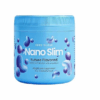 Nano Slim 159 RON
$ 36,00
Nano Slim 159 RON
$ 36,00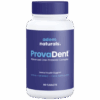 Provadent
$ 69,00
Provadent
$ 69,00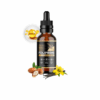 FoliPrime
$ 69,00
FoliPrime
$ 69,00 HepatoBurn
$ 79,00
HepatoBurn
$ 79,00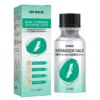 Kerassentials
$ 79,00
Kerassentials
$ 79,00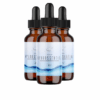 Hydrossential
$ 69,00
Hydrossential
$ 69,00 Neuro Balance
$ 37,00
Neuro Balance
$ 37,00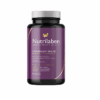 Nutrilaben free Instead of PLN 299
$ 82,00
Nutrilaben free Instead of PLN 299
$ 82,00